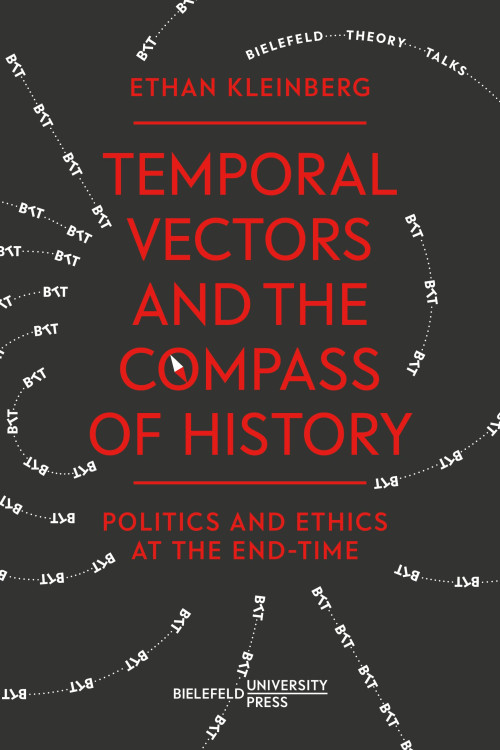
Temporal Vectors and the Compass of History
As truth and expertise come under question, how should we engage with the past? In his 2021 Koselleck Lecture, Ethan Kleinberg diagnoses a crisis in historical representation, arguing that conventional approaches fail to address today’s epistemic challenges. He introduces a new paradigm that views historical events as dynamic forces requiring a more flexible, ethically attuned historiography. Kleinberg calls for a “new compass of history” to counter post-truth distortions, conspiracy theories, and revisionist narratives. His lecture is followed by critical responses from prominent intellectuals Berber Bevernage, Kristin Platt, and Lisa Regazzoni, who examine its implications for the discipline. This volume offers a timely reflection on the role of history in an era where truth and fact are no longer certainties —an essential read for those rethinking how we engage with the past.
Kapitel
-
1 Temporal Vectors and the Compass of History
Introduction
We have reached the end-time of truth. We aren’t the first to live through such times, and one could imagine parallels with early modern Europe during the Copernican and then scientific revolutions. That was a moment of radical… - Kommentare
-
2 History Offstage
If “striving for truth … has its roots in justice,” as Nietzsche wrote, what happens to justice at the “end-time of truth”? What are the consequences of the current crisis of the truth regime and truth construction for our striving for… -
3 A Compass that Promises Overcoming Uncertainty and Facing the Future
Can history play a role in the search for a compass that gives us certainty in a world that locates itself at “the end-time of truth,” a world in which knowledge no longer has authority, a world in which a profound rupture exists between the “space… -
4 Haunting pasts and “post-truth”: from objectivity to solidarity
Ethan Kleinberg has written a rich and inspiring essay, with much of which I wholeheartedly agree. Kleinberg and I share several intellectual and political interests. We are both interested in the implications of Derrida’s theory of spectrality for… -
5 A Brief Response - To Regazzoni, Platt, Bevernage
This volume is a unique and adventurous endeavor in that it offers theory of history in the making as opposed to theory of history made. The reader catches me in the process of developing an argument for a new theory of history, which will be brought…